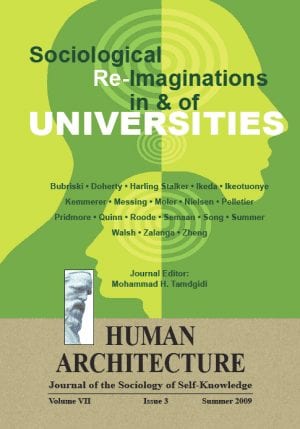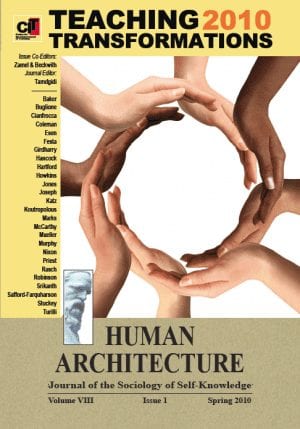Journal Article — Reflexive Pedagogy and the Sociological Imagination — by L. Lynda Harling Stalker and Jason Pridmore
$15.00
This article suggests that enabling students to develop their ‘sociological imagination’ is best accomplished through the use of ‘reflexive pedagogy.’
Description
Abstract
This article suggests that enabling students to develop their ‘sociological imagination’ is best accomplished through the use of ‘reflexive pedagogy.’ Reflexive pedagogy is here described as the dual process of guiding students through different modes of sociological learning while maintaining a critical and reflexive self examination of one’s own approach to instruction. Using Jennifer Mason’s (2002) description of the three ways of ‘reading’ data, this paper indicates that sociological learning can be seen to occur in three similar modes: literal, interpretive and reflexive. In progressing through these modes of learning, students are able to acquire the sociological imagination more fully. Further, instructors who model these practices by being transparent about their own pedagogical practice provide an example of how the sociological imagination can be employed even within the context of sociological instruction.
Recommended Citation
Harling Stalker, L. Lynda and Jason Pridmore. 2009. “Candle.” Pp. 27-36 in Sociological Re-Imaginations in & of Universities (Human Architecture: Journal of the Sociology of Self-Knowledge: Volume VII, Issue 3, 2009.) Belmont, MA: Okcir Press (an imprint of Ahead Publishing House).
The various editions of Sociological Re-Imaginations in & of Universities can be ordered from the Okcir Store and are also available for ordering from all major online bookstores worldwide (such as Amazon, Barnes&Noble, and others).
Read the Above Publication Online
To read the above publication online, you need to be logged in as an OKCIR Library member with a valid access. In that case just click on the large PDF icon below to access the publication. Make sure you refresh your browser page after logging in.








